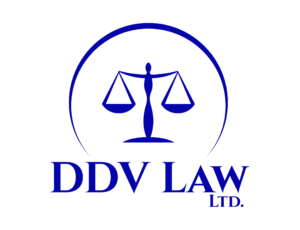Guardianship

Incapacity Management:
Powers of Attorney:
Health Care:
A power of attorney for health care designates an agent to make crucial health care decisions. A heath care power of attorney may also provide specific instructions to the agent regarding particular treatments such as dialysis, chemotherapy, radiation, surgery and the use of feeding tubes, respirators, or other methods of life support.
Property:
A property power of attorney is commonly used to allow an individual to appoint someone else to handle the sale of a car or house. Property powers of attorney can also be used to appoint an agent to handle nearly all types of financial transactions and decisions. A “durable” power of attorney is one that does not terminate if the principal becomes disabled or incompetent. All powers of attorney for property terminate on the death of the principal.
The powers granted to the agent can vary. An agent’s powers may include complete authority to manage all affairs and make all decisions or they may be limited to specific transactions. The power of attorney may contain a termination date, or restrictions on the agent’s authority. A power of attorney may be revoked at any time while the principal is still competent.
Powers of attorney are only valid if executed by someone who is legally competent. They are best used as part of a comprehensive estate plan, prepared and executed well in advance of their necessity. Generally, once a power of attorney is necessary, it is already too late for someone to make one. It is also possible to discharge one agent and appoint another.
Guardianship:
If a person becomes incapacitated without having previously made a durable power of attorney, they may need a guardian. Guardianship is a legal procedure by which a court declares an adult incompetent and appoints someone to manage financial matters, living arrangements and medical care decisions. When a court appoints a guardian for an adult, that person loses the right to make some or all of their own decisions for themselves. For this reason, there are many safety mechanisms in place to insure that the alleged disabled person has an adequate opportunity to contest the appointment of a guardian, if they so choose.
A respondent in a guardianship proceeding must be served with summons, and the court will typically appoint a Guardian ad Litem to conduct an interview; this is carried out to determine if the respondent objects. A respondent has many rights including the right to a trial by jury, a right to present evidence, and the right to be represented by an attorney. The Guardian ad Litem informs the respondent of those rights during the initial meeting.
Age or minor physical or mental impairments do not necessarily mean that the adult requires a guardian. Providing that they are still able to manage their personal and financial affairs, the courts will not appoint a guardian for someone on the basis that their family believes that they are making risky decisions. Courts will appoint a guardian if the respondent has a physical or mental condition which impairs his/her decision making capacity or ability to avoid harm.
Guardianship is ordinarily not necessary for an incapacitated person who has appointed an agent under a durable power of attorney. However, if an agent has not been appointed, friends or family may start legal proceedings to obtain a guardian. Sometimes, the County Public Guardian, or the Office of the State Guardian will petition for guardianship, and/or serve as the guardian for incapacitated persons.
A court appointed guardian frequently has complete authority over the person and estate of a disabled adult, and will manage all financial matters, and make all personal decisions. The court, however, supervises the guardian, and requires that they file an annual report and accounting. All interested family members must be given notice of accountings, and other major decisions, such as any request to sell real estate belonging to the ward. At all times, a guardian must be bonded, and may be discharged or removed if a court ever determines that the guardian is not acting in the best interest of the ward.
Guardianship or Power of Attorney?:
The answer to this commonly asked question depends greatly upon on the situation. As described above, a power of attorney is a document that must be made while the principal is still competent. For this reason, where a person is incompetent, and they have not already made a power of attorney, guardianship is the only option.
The primary benefit of a power of attorney is that it allows the principal to select their agent without the need of expensive and time-consuming court intervention. Most agents fulfill their obligations properly, but occasionally, a power of attorney agent abuses the authority granted to them by their principal. Such abuse happens most frequently in situations where the agent has had no training in managing financial matters, when there is no supervision of the agent by a third party, and where the principal is physically or mentally incapacitated. Because of the potential for misuse, a power of attorney agent must be chosen carefully, and the principal may wish to consider requiring the agent to account to a third party, such as the principal’s child, accountant, or attorney.
The primary benefit of a guardianship is that there is greater protection against abuse by the guardian. All major decisions of the guardian must be approved by the court. Any interested person who suspects that the guardian is abusing their authority may ask the court to investigate, and all guardians must post a bond to guarantee that if they misuse the wards funds, the ward will have a means to recover them. The added burdens of time and expense come with the benefits that all actions of a guardian are supervised by a judge and you have security in the knowledge that the guardian’s actions are in the best interest of the ward. This method serves to protect the ward from exploitation by the guardian, as well as to protect the guardian from allegations of wrongdoing.
Our Practices
Guardianship
The position of being legally responsible for the care of someone who is unable to manage their own affairs
Medicaid Assistance
Medicaid planning consists of selecting the best care, ensuring quality of life and protecting the assets for the elder
Elder Abuse And Exploitation
We have extensive experience in sensitively handling various types of abuse and exploitation cases
Living Trusts
Living Trusts have several advantages over Wills, like avoiding probate and guardianship, maintaining liquidity,
Nursing Home Contracts
Contracts can be confusing and some nursing homes even request illegal or unfair conditions
Probate
Probate is the process by which the Probate Court identifies a decedent’s heirs and determines the validity
Special Needs Planning
Special needs planning involves planning for a child or adult with disabilities to ensure eligibility for

